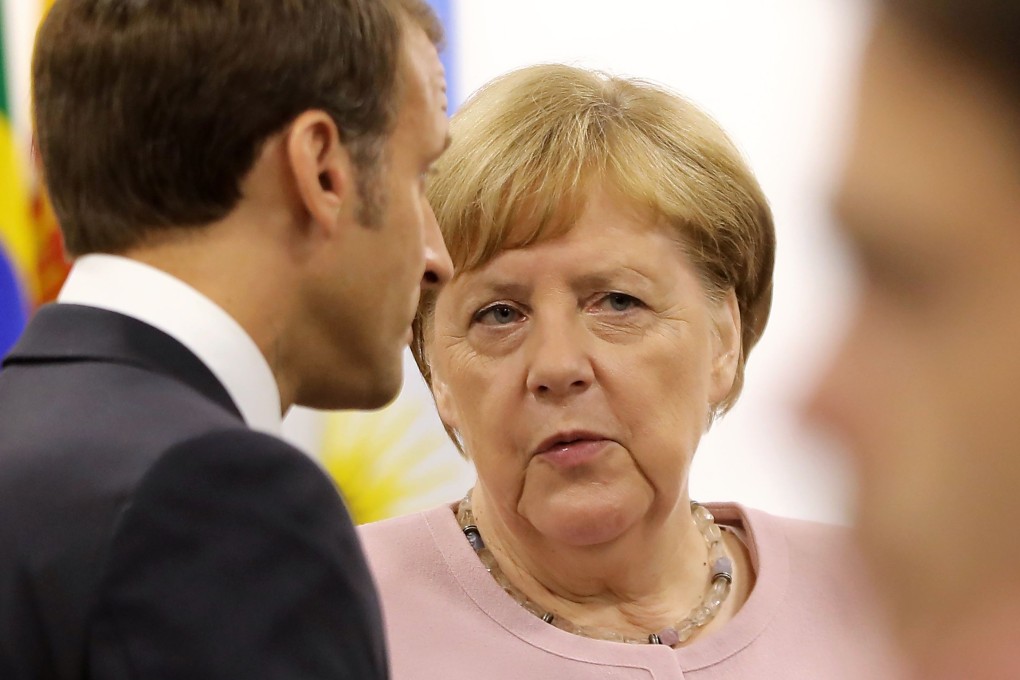G20 split as US refuses to sign joint statement on climate change
- But there was no mention of unilateralism in the leaders’ declaration, despite Beijing’s focus on opposing it
- Wrangling over the part on tackling greenhouse gas emissions continued into the early hours of Saturday

But Washington did manage to avoid any mention of unilateralism in the leaders’ declaration, despite strong criticism from Beijing on the subject.
At one stage it appeared the leaders of the world’s 20 biggest economies may not agree to a final joint statement, with the US seeking support from other members to oppose the 2015 Paris Agreement.
In the end, the climate change section was presented in what German Chancellor Angela Merkel described as “a 19 to 1 declaration”, similar to the situation at the previous G20 summits after President Donald Trump withdrew the US from the Paris pact in 2017.
“Signatories to the Paris Agreement who confirmed at Buenos Aires its irreversibility and are determined to implement it, reaffirm their commitment to its full implementation, reflecting common but differentiated responsibilities and respective capabilities, in the light of different national circumstances,” the joint declaration read.
It added that the US “reiterates its decision to withdraw from the Paris Agreement because it disadvantages American workers and taxpayers”.